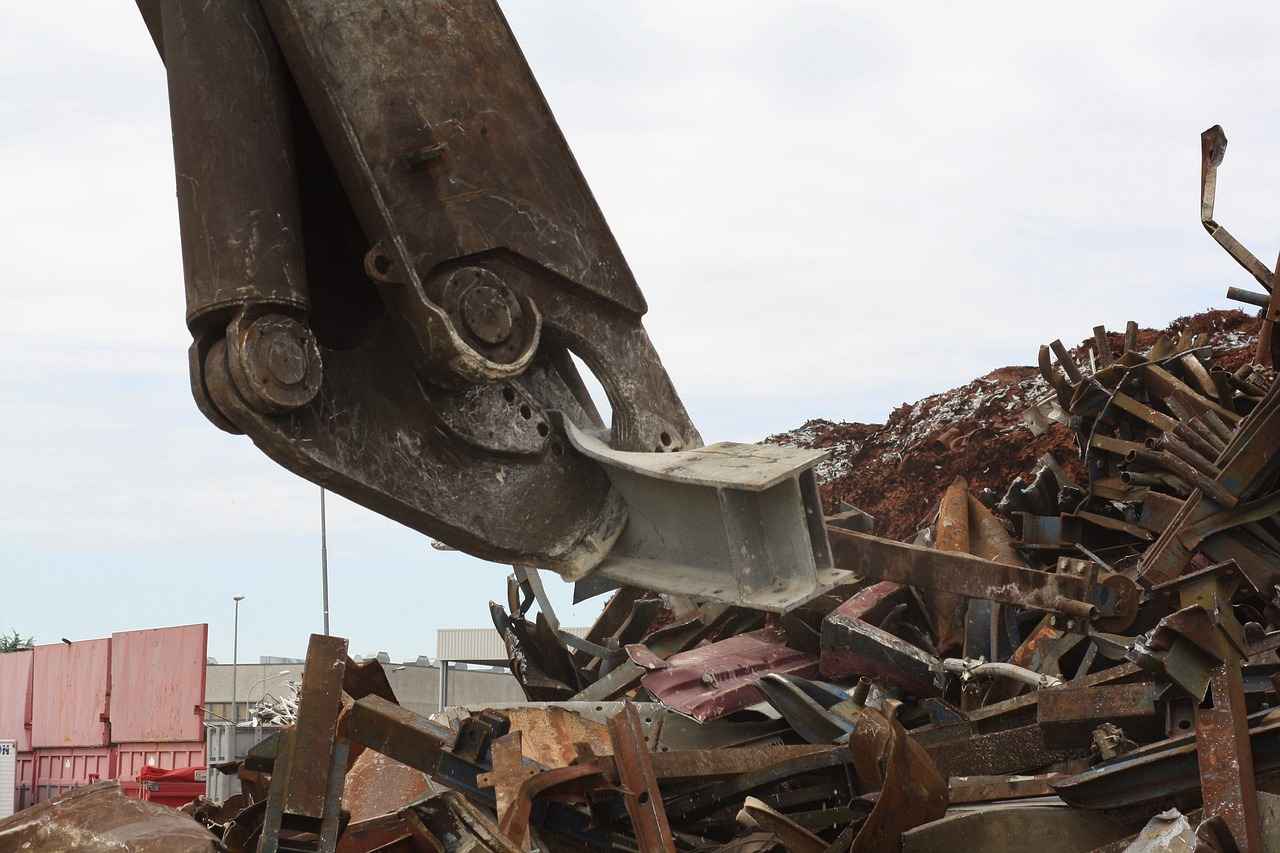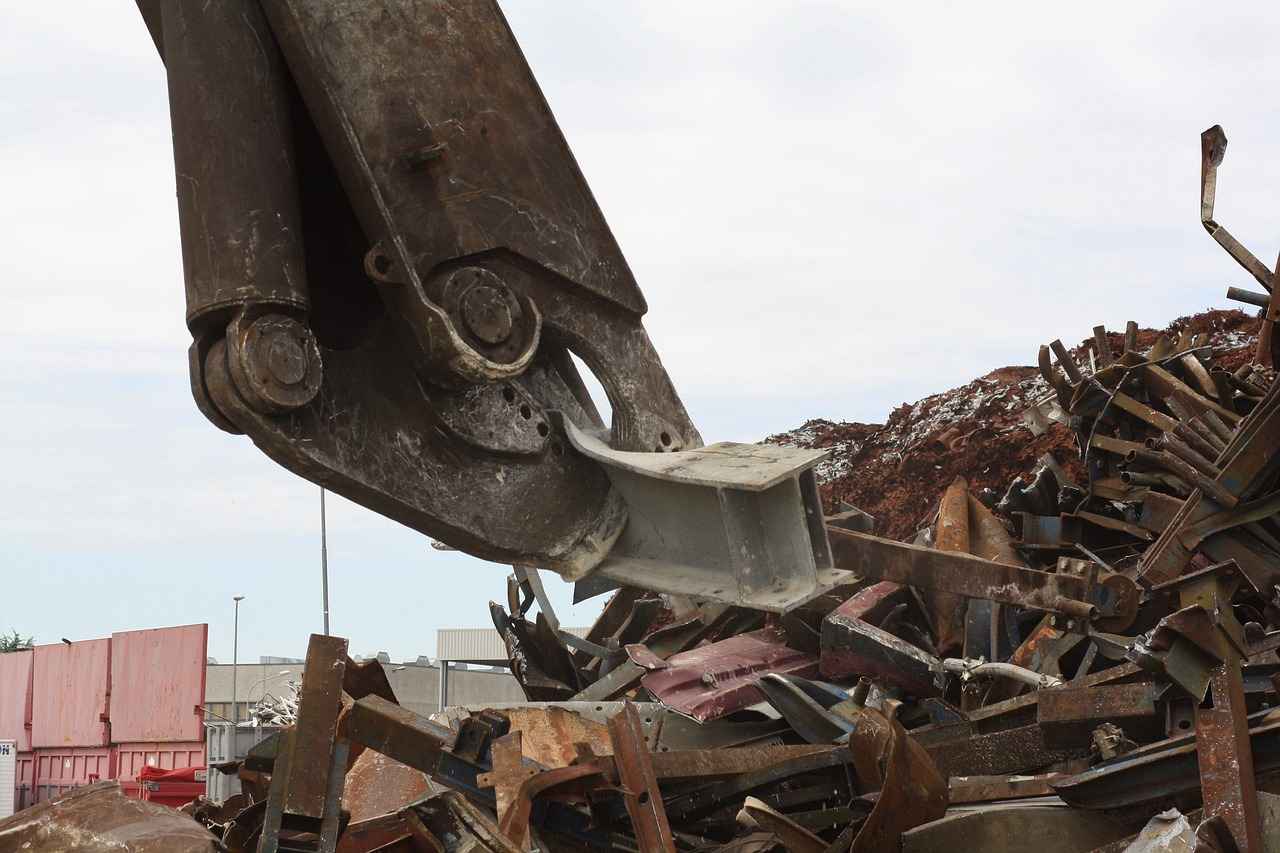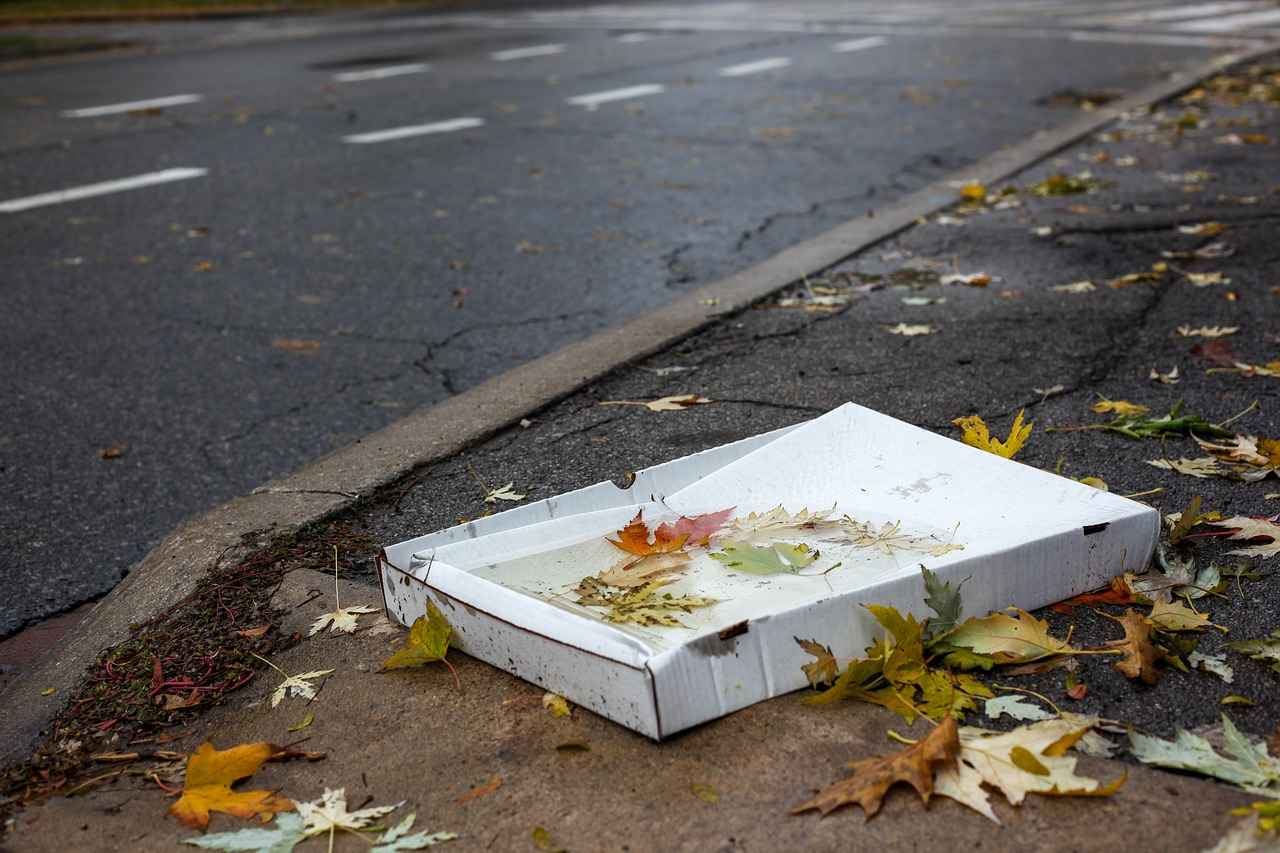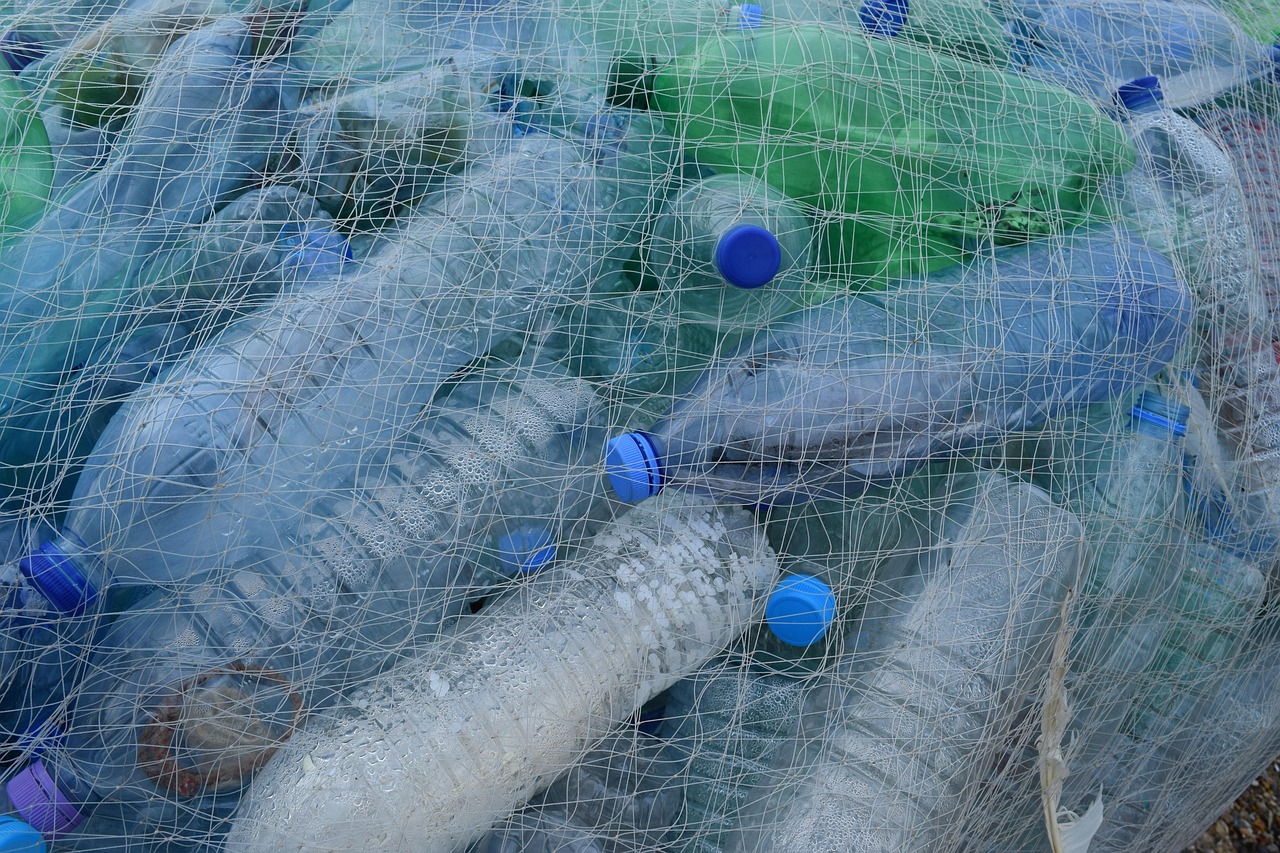is a captivating exploration of a character dedicated to promoting recycling and sustainability. Through his adventurous spirit, Rocky inspires individuals of all ages to embrace eco-friendly practices. This article will delve into his missions, methods, and the broader impact of these practices on our planet.
Who is Rocky the Recycling Hero?
Rocky is a fictional character designed to educate both children and adults about the importance of recycling. With his engaging personality and relatable adventures, he has become a beloved figure in environmental education. Rocky’s mission is to make recycling fun and accessible, showing that everyone can contribute to a healthier planet.
Why is Recycling Important?
Recycling plays a pivotal role in reducing waste, conserving resources, and minimizing environmental impact. It helps to lower greenhouse gas emissions, thus combating climate change. Understanding the significance of recycling empowers individuals and communities to adopt sustainable practices, ultimately reducing their carbon footprint.
The Environmental Impact of Waste
Waste accumulation is a major contributor to pollution and climate change. Recognizing the environmental consequences of waste can motivate individuals to adopt recycling as a viable solution. By recycling, we can significantly decrease the amount of waste sent to landfills.
Landfill Overflow and Its Consequences
Landfills are overflowing with materials that could be recycled. This not only takes up valuable space but also releases harmful gases, such as methane, contributing to global warming. Promoting recycling is essential to reducing our dependency on landfills.
Pollution from Non-Recycled Materials
When non-recycled materials end up in oceans and landscapes, they cause severe harm to wildlife and ecosystems. Recycling mitigates this pollution, fostering a healthier planet for future generations. By reducing the amount of waste that ends up in nature, we can protect biodiversity.
How Rocky Promotes Recycling
Rocky uses fun and interactive methods to engage communities in recycling efforts. His missions involve workshops, educational materials, and community clean-up events that inspire collective action towards sustainability. By making learning enjoyable, Rocky encourages participation from all age groups.
Fun Facts About Recycling
- Recycling Saves Energy: Recycling materials such as aluminum and paper significantly reduces energy consumption compared to producing new products. This energy conservation is crucial in combating climate change and promoting sustainability.
- Recyclable Items You Might Not Know About: Many items, including electronics and certain plastics, are recyclable but often overlooked. Educating the public on these items can greatly improve recycling rates and reduce waste.
Challenges in Recycling Efforts
Despite its benefits, recycling faces various challenges, including contamination of recyclable materials and a lack of public awareness. Addressing these challenges is essential for improving recycling systems and participation.
Contamination Issues in Recycling
Contamination occurs when non-recyclable items are mixed with recyclables, rendering entire batches unusable. Educating the community on proper recycling practices can significantly reduce this issue and improve recycling outcomes.
Lack of Accessibility to Recycling Facilities
In many areas, access to recycling facilities is limited, hindering participation. Advocating for more accessible recycling programs is crucial for enhancing community engagement and sustainability efforts.
How to Get Involved with Rocky’s Missions
Individuals can participate in Rocky’s eco-friendly missions by joining local recycling initiatives, attending workshops, and spreading awareness about the importance of sustainability in their communities.
Community Clean-Up Events
Participating in community clean-up events helps remove waste from local environments while promoting recycling. These events foster a sense of community and responsibility toward the planet, making everyone a part of the solution.
Educational Workshops and Programs
Rocky often hosts workshops that educate participants on effective recycling practices. Engaging in these programs empowers individuals to make informed decisions about waste management, further enhancing their commitment to sustainability.

Who is Rocky the Recycling Hero?
Rocky the Recycling Hero is not just a character; he embodies a movement aimed at fostering environmental consciousness among both children and adults. Created with a vibrant personality and a knack for adventure, Rocky captures the hearts of his audience while delivering crucial messages about recycling and sustainability. His journey is filled with challenges and triumphs that resonate with individuals of all ages, making him a relatable figure in the realm of environmental education.
Rocky’s adventures often take him to schools, community centers, and parks, where he engages with people through fun activities and educational workshops. His mission is clear: to make recycling an exciting and integral part of everyday life. By using storytelling, interactive games, and hands-on demonstrations, Rocky successfully demystifies the recycling process, making it accessible and enjoyable.
Why is Rocky Important? In a world where environmental issues are increasingly pressing, Rocky serves as a beacon of hope and action. He emphasizes that every individual has the power to make a difference. Through his relatable escapades, he teaches the importance of recycling not only for the environment but also for future generations. The lessons he imparts are simple yet profound: recycling conserves resources, reduces waste, and minimizes pollution.
Rocky’s engaging approach helps to break down complex topics into digestible information. For example, he explains how recycling paper can save trees and reduce energy consumption, while recycling plastics can help prevent ocean pollution. These lessons are not only informative but also inspire action and commitment to sustainable practices.
Moreover, Rocky addresses common misconceptions about recycling. Many people are unaware of what can and cannot be recycled, leading to contamination and inefficiency in recycling programs. Through his adventures, Rocky educates the public on the importance of sorting recyclables correctly and understanding local recycling guidelines. This knowledge empowers individuals to participate more effectively in recycling initiatives.
Rocky’s Impact on Communities extends beyond individual education. He collaborates with local organizations to host community clean-up events, where participants can see firsthand the positive effects of recycling and waste reduction. These events foster a sense of community and collective responsibility, encouraging participants to take pride in their environment.
Additionally, Rocky’s presence in educational settings has proven to be beneficial in shaping young minds. Children who engage with Rocky’s programs often carry these lessons into their homes, influencing their families and friends. This ripple effect amplifies Rocky’s impact, as it creates a generation that is more aware and proactive about environmental issues.
Fun Facts About Rocky’s Adventures often include surprising statistics about recycling. For instance, did you know that recycling one aluminum can saves enough energy to power a television for three hours? Or that recycling just one ton of paper can save 17 trees? These facts not only captivate the audience but also serve as powerful motivators for action.
In conclusion, Rocky the Recycling Hero is more than just a fictional character; he is a symbol of hope and a catalyst for change. His engaging personality and relatable adventures inspire individuals to embrace recycling and sustainability. By educating communities, dispelling myths, and promoting active participation, Rocky plays a crucial role in building a greener, more sustainable future for all.

Why Recycling is Important
Recycling is not merely a trend; it is a vital practice that has far-reaching implications for our environment and society. By understanding , we can all contribute to a healthier planet and a sustainable future.
At its core, recycling is the process of converting waste materials into reusable materials. This practice significantly reduces waste, conserves natural resources, and minimizes the overall environmental impact. With the growing concerns about climate change and resource depletion, embracing recycling has never been more crucial.
| Benefits of Recycling | Impact |
|---|---|
| Reduces Landfill Waste | Less waste in landfills means less pollution and greenhouse gas emissions. |
| Conserves Natural Resources | Recycling materials like paper and metals reduces the need for virgin resources. |
| Saves Energy | Recycling often uses less energy than producing new products from raw materials. |
| Creates Jobs | The recycling industry generates employment opportunities in various sectors. |
One of the most pressing issues today is the environmental impact of waste. As landfills overflow, they not only consume valuable land but also release harmful gases like methane, which contribute to global warming. By recycling, we can significantly decrease the amount of waste sent to landfills and reduce the associated environmental hazards.
- Pollution from Non-Recycled Materials: Items that are not recycled often end up in oceans and natural habitats, posing a severe threat to wildlife. By recycling, we can help mitigate this pollution and protect ecosystems.
- Resource Conservation: Recycling conserves essential resources. For instance, recycling paper reduces the need for deforestation, while recycling metals saves energy and reduces mining impacts.
Moreover, recycling has a direct correlation with energy savings. For example, recycling aluminum can save up to 95% of the energy required to produce new aluminum from raw materials. This reduction in energy consumption is critical in our fight against climate change.
Despite its numerous benefits, recycling faces challenges. Contamination is a significant issue, as non-recyclable materials mixed with recyclables can render entire batches unusable. Education on proper recycling practices is essential to combat this problem and improve recycling rates.
Additionally, access to recycling facilities can be limited in many communities, which hampers participation. Advocating for more accessible recycling programs can help enhance community engagement and promote sustainability.
By understanding , individuals can take actionable steps to incorporate recycling into their daily lives. Whether it’s participating in local recycling initiatives or educating others about the benefits of recycling, every effort counts. Together, we can create a more sustainable future for ourselves and generations to come.
The Environmental Impact of Waste
Waste accumulation is a pressing global issue that significantly contributes to pollution and climate change. Understanding the environmental consequences of waste is crucial for inspiring individuals and communities to adopt recycling as a viable solution. This section will explore the multifaceted impacts of waste on our planet, the importance of recycling, and how we can collectively address these issues.
When we think about waste, it’s essential to recognize that it doesn’t just disappear. Instead, it often ends up in landfills, where it decomposes slowly, releasing harmful gases such as methane into the atmosphere. Methane is a potent greenhouse gas, significantly more effective than carbon dioxide at trapping heat in the atmosphere. This process exacerbates global warming and contributes to climate instability.
Moreover, waste accumulation leads to landfill overflow, which poses serious environmental risks. Landfills are filled with materials that could be recycled, such as plastics, paper, and metals. The overflow not only takes up valuable land space but also contaminates surrounding soil and water sources, leading to long-term ecological damage. By promoting recycling, we can reduce our reliance on landfills and mitigate these adverse effects.
Another critical aspect of waste management is the pollution caused by non-recycled materials. Items that are not properly disposed of often find their way into oceans and natural landscapes, resulting in devastating impacts on wildlife and ecosystems. For instance, plastic waste can suffocate marine life, disrupt food chains, and lead to the death of countless species. Recycling helps to alleviate this issue by ensuring that materials are repurposed rather than discarded.
Recycling also plays a vital role in conserving natural resources. By recycling materials like aluminum and paper, we can save energy and reduce the need for raw materials. For example, recycling aluminum saves up to 95% of the energy required to produce new aluminum from ore. This energy conservation is crucial in our fight against climate change, as it reduces greenhouse gas emissions associated with manufacturing processes.
Despite the clear benefits of recycling, several challenges hinder effective waste management. One significant issue is contamination of recyclable materials. When non-recyclable items are mixed with recyclables, it renders entire batches unusable. This contamination not only increases costs for recycling facilities but also discourages participation in recycling programs. Educating the public on proper recycling practices is essential to minimize this issue.
Additionally, there is often a lack of accessibility to recycling facilities, particularly in rural or underserved communities. This limitation can discourage individuals from participating in recycling efforts. Advocating for more accessible recycling programs and infrastructure is crucial for enhancing community engagement and sustainability initiatives.
In conclusion, recognizing the environmental impact of waste is the first step toward fostering a culture of recycling and sustainability. By understanding the consequences of waste accumulation, we can motivate ourselves and others to embrace recycling as a solution to these pressing environmental issues. Through collective action and education, we can create a cleaner, healthier planet for future generations.
Landfill Overflow and Its Consequences
Landfills are increasingly becoming a pressing issue in our modern society. As they reach their capacity, the consequences of landfill overflow become more evident. This situation is not merely a matter of aesthetics; it poses significant environmental and health risks that we cannot afford to ignore.
One of the most alarming consequences of overflowing landfills is the release of harmful gases. As organic waste decomposes, it generates methane, a potent greenhouse gas that contributes to climate change. According to the Environmental Protection Agency (EPA), methane is over 25 times more effective than carbon dioxide at trapping heat in the atmosphere over a 100-year period. This means that the more waste we send to landfills, the more we exacerbate global warming.
In addition to methane, landfills emit other toxic gases, including volatile organic compounds (VOCs), which can lead to air pollution and respiratory issues in nearby communities. The health implications of living near a landfill are profound, often resulting in increased rates of asthma, allergies, and other respiratory ailments.
Moreover, overflowing landfills can lead to contamination of local water sources. When waste breaks down, it can leach harmful chemicals into the soil and groundwater, posing a serious risk to both human health and wildlife. Contaminated water supplies can lead to serious health issues, including gastrointestinal illnesses and long-term exposure risks such as cancer.
The visual impact of overflowing landfills also cannot be overlooked. They often become breeding grounds for pests and vermin, further complicating public health issues. The presence of rats, flies, and other pests can lead to the spread of diseases, making it essential to address the issue of waste management effectively.
To combat these challenges, promoting recycling becomes crucial. By recycling materials that would otherwise end up in landfills, we can significantly reduce the volume of waste produced. This not only conserves valuable resources but also minimizes the need for new landfills. For instance, recycling one ton of paper can save approximately 17 trees, 7,000 gallons of water, and reduce emissions by over 4,000 pounds of carbon dioxide.
Public awareness and education play a pivotal role in enhancing recycling efforts. Many individuals are unaware of the wide range of materials that can be recycled, including electronics, batteries, and certain plastics. By informing communities about what can be recycled, we can improve recycling rates and reduce landfill dependency.
Furthermore, local governments and organizations can implement more accessible recycling programs. This includes providing clearly labeled bins, establishing drop-off centers, and conducting community workshops to educate residents on proper recycling practices. Addressing the contamination issues that arise from improper recycling is also essential. When non-recyclable items are mixed with recyclables, it can render entire batches unusable, leading to increased waste.
In conclusion, the overflow of landfills presents a multitude of environmental and health challenges that necessitate immediate action. By prioritizing recycling and educating communities about sustainable practices, we can mitigate these issues and work towards a cleaner, healthier planet. The responsibility lies with each of us to promote recycling and reduce our dependency on landfills, ensuring a sustainable future for generations to come.
Pollution from Non-Recycled Materials
In today’s world, the issue of waste management has become increasingly pressing, particularly concerning . When materials are not recycled, they often find their way into our oceans, rivers, and landscapes, leading to catastrophic consequences for wildlife and ecosystems. This article delves into the various aspects of this pressing issue, emphasizing the importance of recycling in mitigating pollution and protecting our planet.
Every year, millions of tons of plastic and other non-recyclable materials are discarded improperly. These materials pose a significant threat to marine life, as they can be ingested by animals, leading to injury or death. For instance, sea turtles often mistake plastic bags for jellyfish, their natural food source. This unfortunate misunderstanding can result in severe health issues or even mortality for these creatures.
Moreover, the presence of non-recycled materials in the environment disrupts delicate ecosystems. Microplastics, tiny plastic particles that result from the breakdown of larger plastic items, have infiltrated every corner of our planet, from the deepest ocean trenches to remote mountain ranges. These microplastics not only harm wildlife but also enter the food chain, posing potential health risks to humans as well.
| Impact of Non-Recycled Materials | Consequences |
|---|---|
| Marine Pollution | Ingestion by wildlife, habitat destruction |
| Land Pollution | Soil contamination, harm to terrestrial animals |
| Air Pollution | Release of toxic gases from decomposing waste |
Recycling serves as a vital solution to combat this pollution. By recycling materials such as plastic, paper, and metal, we can significantly reduce the amount of waste that ends up in landfills and natural environments. Additionally, recycling conserves natural resources and reduces energy consumption, which is crucial in the fight against climate change.
One of the most effective ways to promote recycling is through education and community engagement. Programs that inform individuals about the importance of recycling and the specific items that can be recycled are essential. For example, many people are unaware that items like electronics and certain types of plastics can be recycled. By raising awareness, we can improve recycling rates and decrease the volume of waste produced.
- Community Workshops: Engaging local communities through workshops can foster a culture of recycling. These sessions can teach participants about proper recycling practices and the benefits of recycling.
- School Programs: Introducing recycling education in schools can instill eco-friendly values in children from a young age, encouraging them to become responsible stewards of the environment.
- Incentive Programs: Implementing incentive programs for recycling can motivate individuals to participate actively in recycling efforts.
In conclusion, addressing the issue of pollution from non-recycled materials is crucial for the health of our planet. By prioritizing recycling and educating communities about its importance, we can work towards a cleaner, safer, and more sustainable future. The journey towards a healthier planet begins with each individual making conscious choices about waste management and recycling.
How Rocky Promotes Recycling
In today’s world, the need for sustainable practices is more pressing than ever. Rocky the Recycling Hero has taken it upon himself to engage and inspire communities in their recycling efforts through a variety of innovative and interactive methods. His missions are not just about collecting recyclables; they are about fostering a sense of community and shared responsibility toward our planet.
One of Rocky’s primary strategies is to conduct interactive workshops that cater to all age groups. These workshops are designed to educate participants about the recycling process, the types of materials that can be recycled, and the environmental benefits of reducing waste. By incorporating games, hands-on activities, and engaging discussions, Rocky ensures that attendees leave with a deeper understanding of their role in sustainability.
In addition to workshops, Rocky creates and distributes educational materials that simplify complex recycling concepts. These materials include colorful brochures, infographics, and even digital content that can be shared on social media platforms. By making information accessible and visually appealing, Rocky enhances awareness and encourages individuals to adopt eco-friendly habits.
Community clean-up events are another cornerstone of Rocky’s mission. These events not only help to remove litter from local parks and neighborhoods but also serve as a platform for educating participants about the importance of recycling. Volunteers are often surprised to learn how much waste can be diverted from landfills simply by recycling items they might have otherwise discarded. Rocky believes that these hands-on experiences foster a sense of ownership and pride in one’s community.
Moreover, Rocky collaborates with local businesses and schools to amplify his impact. By partnering with these organizations, he can reach a broader audience and encourage collective action. Schools, for instance, can implement recycling programs that tie into Rocky’s educational content, allowing students to apply what they’ve learned in real-world scenarios. This not only reinforces the lessons but also cultivates a culture of sustainability among younger generations.
Rocky’s approach also emphasizes the importance of community engagement. He encourages residents to share their recycling success stories and challenges, creating a supportive network where individuals can learn from one another. This sense of community is vital for sustaining long-term recycling efforts, as it fosters collaboration and accountability.
To further enhance participation, Rocky utilizes social media to spread awareness about upcoming events and share tips on effective recycling practices. By leveraging popular platforms, he can engage with a younger audience and inspire them to take action. His dynamic online presence not only educates but also motivates individuals to participate in local initiatives.
In conclusion, Rocky the Recycling Hero exemplifies how fun and interactive methods can significantly boost community engagement in recycling efforts. Through workshops, educational materials, and community clean-up events, he inspires collective action towards sustainability. By fostering a sense of community and collaboration, Rocky is not just promoting recycling; he is cultivating a movement that encourages individuals to take responsibility for their environment.

Fun Facts About Recycling
Recycling is not just a mundane task; it is a powerful practice that can lead to significant positive changes for our planet. Learning interesting facts about recycling can enhance awareness and motivate individuals to participate actively. These facts highlight the numerous benefits of recycling and its positive impact on the environment.
- Recycling Conserves Natural Resources: By recycling materials such as paper, glass, and metals, we reduce the need for raw materials. This conservation helps protect forests, water sources, and mineral deposits.
- Recycling Reduces Energy Consumption: Did you know that recycling aluminum saves up to 95% of the energy required to create new aluminum from raw materials? This energy saving is crucial in our fight against climate change.
- Recycling Creates Jobs: The recycling industry is a significant source of employment. In the United States alone, it supports over 1.1 million jobs, contributing to the economy while promoting sustainability.
- Recycling Reduces Greenhouse Gas Emissions: By recycling, we can significantly reduce greenhouse gas emissions. For instance, recycling one ton of paper can save approximately 1.5 tons of carbon dioxide emissions.
- Many Items Are Recyclable: Beyond typical materials like paper and plastic, many items are recyclable that people often overlook. Electronics, batteries, and certain types of plastics can also be recycled, reducing waste significantly.
- Recycling Can Save Water: Producing new products from recycled materials often uses less water than creating them from virgin materials. For example, recycling paper uses about 50% less water than making paper from trees.
- Recycling Reduces Landfill Waste: Every ton of recycled waste means one less ton of waste in landfills. This is crucial as landfills are overflowing, leading to pollution and habitat destruction.
- Global Recycling Rates Vary: While some countries excel in recycling, others lag behind. Countries like Germany and Sweden have recycling rates exceeding 60%, while the U.S. averages around 35%. This disparity highlights the need for improved recycling initiatives worldwide.
Understanding the benefits of recycling goes beyond just the facts. It cultivates a culture of sustainability, encouraging individuals to think critically about their consumption habits. By recycling, we not only reduce waste but also support a circular economy where materials are reused, reducing the need for new resources.
The environmental impact of recycling is profound. Each recycled item represents a step towards a cleaner planet. For instance, recycling plastics reduces the amount of plastic waste that ends up in oceans, which is crucial for protecting marine life. Additionally, recycling metals reduces the need for mining, which can be devastating to ecosystems.
Individuals can make a difference by participating in local recycling programs and initiatives. Here are some practical steps to get involved:
- Understand Your Local Recycling Guidelines: Each community has different rules regarding what can and cannot be recycled. Familiarize yourself with these guidelines to ensure proper recycling practices.
- Educate Others: Share your knowledge about recycling with friends and family. The more people understand the benefits and methods of recycling, the greater the collective impact.
- Participate in Clean-Up Events: Join community clean-up events to help reduce litter and promote recycling efforts in your area.
- Support Local Recycling Initiatives: Advocate for more recycling programs in your community, and support businesses that prioritize sustainable practices.
By embracing recycling and sharing these fun facts, we can inspire others to join the movement towards a more sustainable future. Every small action counts, and together, we can make a significant difference for our planet.
Recycling Saves Energy
In today’s world, where climate change poses a significant threat to our planet, the importance of recycling cannot be overstated. One of the most compelling reasons to recycle is its ability to save energy. When we recycle materials such as aluminum and paper, we significantly reduce the energy needed to produce new products. This energy conservation is not only beneficial for the environment but is also a crucial step in combating climate change and promoting sustainability.
The Energy Savings of Recycling
Producing new aluminum from raw materials requires a staggering amount of energy—up to 95% more than recycling aluminum. By recycling aluminum cans, we can save enough energy to power a home for several days. Similarly, recycling paper can save about 60% of the energy compared to creating paper from virgin wood pulp. This substantial energy conservation has a ripple effect on reducing greenhouse gas emissions, which are a major contributor to global warming.
Why Energy Efficiency Matters
Energy efficiency is vital in the fight against climate change. When we recycle, we not only conserve energy but also reduce the need for fossil fuels, which are often used in the manufacturing process. This reduction in fossil fuel consumption leads to lower carbon emissions, helping to mitigate the effects of climate change. Furthermore, recycling helps to preserve natural resources, ensuring that future generations will have access to the materials they need.
How Recycling Reduces Energy Consumption
- Less Processing Required: Recycling materials typically requires less processing than creating new products from raw materials. For instance, recycling plastics often involves melting down the existing materials, which uses significantly less energy than producing new plastics from petroleum.
- Decreased Transportation Emissions: When we recycle locally, we reduce the distance that materials need to be transported. This not only saves energy but also decreases emissions associated with transportation.
- Longer Lifespan of Resources: By recycling, we extend the lifespan of our natural resources. This means that less energy is spent on extracting and processing new materials.
Community Impact and Engagement
Communities that actively engage in recycling programs experience not only environmental benefits but also economic advantages. By promoting recycling, local governments can reduce waste management costs and create jobs in the recycling and manufacturing sectors. Educational initiatives, such as those led by Rocky the Recycling Hero, play a crucial role in raising awareness about the importance of recycling and its energy-saving benefits.
Conclusion
In summary, recycling is a powerful tool in the fight against climate change. By saving energy and reducing our reliance on fossil fuels, recycling contributes to a more sustainable future. Encouraging individuals and communities to embrace recycling practices can lead to significant energy conservation, making a positive impact on our planet. As we continue to face the challenges of climate change, every effort to recycle can help pave the way for a healthier, more sustainable world.
Recyclable Items You Might Not Know About
In today’s world, recycling is more important than ever. While many people are aware of common recyclable items such as paper, glass, and plastic bottles, there are numerous overlooked items that can also be recycled. Understanding these lesser-known recyclable materials can significantly enhance recycling efforts and contribute to a more sustainable future.
Many consumers are unaware that their old electronics, often referred to as e-waste, can be recycled. Items such as smartphones, computers, and televisions contain valuable materials like gold, silver, and copper that can be extracted and reused. Recycling e-waste not only conserves resources but also prevents harmful substances like lead and mercury from polluting the environment.
While most people know that plastic bottles can be recycled, many overlook plastic bags and films. These materials can often be returned to grocery stores for recycling. They are typically collected and processed into new products, such as composite lumber and new bags. However, it’s crucial to keep these items clean and free of food residue to ensure they are accepted for recycling.
Did you know that wine corks can be recycled? Many organizations collect natural corks to repurpose them into new products, including flooring and insulation materials. By recycling corks, individuals contribute to reducing waste and supporting sustainable practices in the wine industry.
Compact fluorescent lamps, or CFLs, are energy-saving light bulbs that can be recycled. These bulbs contain small amounts of mercury, making it essential to dispose of them properly. Many local hardware stores and recycling centers offer drop-off programs for CFLs, ensuring that they are recycled safely and responsibly.
Textiles, including old clothing, are often discarded but can be recycled or repurposed. Many organizations accept donations of used clothing, which can be resold or recycled into new fabric products. Recycling textiles not only diverts waste from landfills but also helps reduce the environmental impact of the fashion industry.
Household batteries are another commonly overlooked recyclable item. Many people dispose of batteries in regular trash, but they contain hazardous materials that can leach into the environment. Most communities have designated drop-off locations for battery recycling, ensuring that these materials are handled safely and sustainably.
Pizza boxes may seem like a recycling no-go due to grease and food residue, but many recycling facilities can process them if they are clean. It’s essential to check local guidelines, as some areas accept clean pizza boxes while others do not. By recycling pizza boxes, individuals can contribute to reducing paper waste.
Styrofoam, or expanded polystyrene, is a challenging material to recycle due to its lightweight and bulky nature. However, some specialized recycling centers accept Styrofoam and convert it into new products. It’s important to seek out local facilities that accept this material to ensure it is recycled properly.
In conclusion, raising awareness about these overlooked recyclable items is crucial for improving recycling rates. By educating ourselves and our communities about the various materials that can be recycled, we can reduce waste and promote a more sustainable future. Engaging in recycling initiatives and spreading the word can lead to a significant positive impact on our environment.

Challenges in Recycling Efforts
Recycling is a critical component of sustainable living, yet it faces numerous challenges that hinder its effectiveness. Understanding these challenges is vital for improving recycling systems and encouraging community participation.
One of the most pressing challenges in recycling is contamination. This occurs when non-recyclable materials are mixed with recyclables, leading to entire batches being deemed unusable. For example, placing food-soiled containers in recycling bins can result in the contamination of recyclable materials like paper and plastics. Educating the community on proper recycling practices is essential to reduce this issue. Workshops and informational campaigns can provide clear guidelines on what can and cannot be recycled, ultimately leading to cleaner recycling streams.
Another significant barrier to effective recycling is the lack of public awareness. Many individuals are unaware of the importance of recycling or the specific materials that can be recycled. This lack of knowledge often leads to lower participation rates and increased waste. Engaging educational programs, such as those led by community leaders or organizations like Rocky, can help spread awareness. By highlighting the benefits of recycling and providing practical tips, we can motivate more people to take action.
In many regions, access to recycling facilities is limited, which can discourage individuals from participating in recycling efforts. Accessibility issues can arise due to a lack of local recycling centers, inadequate curbside pickup services, or even limited information on where to recycle. Advocating for more accessible recycling programs is crucial for enhancing community engagement. Local governments and organizations should work together to establish more recycling drop-off locations and improve the infrastructure for curbside recycling.
The economic viability of recycling programs also poses challenges. Fluctuating markets for recyclable materials can impact the sustainability of recycling initiatives. When the demand for recycled materials decreases, it can lead to higher costs for recycling facilities, which may result in cutbacks or closures. It’s essential for communities to support local recycling initiatives and advocate for policies that promote the recycling industry. By investing in recycling infrastructure, we can create a more stable and effective recycling system.
Technological limitations can also hinder recycling efforts. Many recycling facilities still rely on outdated equipment, which can lead to inefficiencies and increased contamination rates. Investing in advanced sorting technologies can significantly improve the quality of recyclable materials and reduce contamination. Innovations in recycling processes can also help in recycling complex materials that are currently not accepted in many facilities, such as certain plastics and composites.
To overcome these challenges, it’s essential to foster a culture of recycling within communities. This involves not only educating the public but also creating a sense of responsibility towards the environment. Community clean-up events, recycling challenges, and school programs can engage individuals and encourage them to adopt sustainable practices. By making recycling a community effort, we can collectively work towards a healthier planet.
In summary, while recycling offers numerous benefits, it is not without its challenges. By addressing contamination issues, improving public awareness, enhancing accessibility, supporting economic viability, and investing in technology, we can strengthen recycling efforts and promote a sustainable future. Engaging the community and fostering a culture of recycling will not only improve participation rates but also contribute to a cleaner and healthier environment for generations to come.
Contamination Issues in Recycling
Recycling is a crucial component of sustainable waste management, but one of its significant challenges is contamination. This issue arises when non-recyclable items are mixed with recyclables, leading to entire batches being deemed unusable. Understanding and addressing contamination is essential for improving recycling rates and ensuring that valuable materials are not wasted.
Contamination occurs when materials that cannot be recycled are introduced into the recycling stream. This can include items like plastic bags, food containers with residue, or non-recyclable plastics. When these materials are processed alongside recyclables, they can compromise the integrity of the entire batch, making it difficult or impossible to recycle the remaining items.
- Increased Costs: Contamination leads to higher processing costs for recycling facilities. They must spend additional resources sorting out non-recyclable materials, which can strain budgets and resources.
- Reduced Quality: Contaminated batches often result in lower quality recycled materials. This impacts the market for recycled goods and can discourage manufacturers from using recycled materials.
- Environmental Impact: When recyclable materials end up in landfills due to contamination, it contributes to environmental degradation and increases greenhouse gas emissions.
Education is a powerful tool in combating contamination. By informing community members about proper recycling practices, we can significantly reduce the likelihood of contamination. Here are some effective strategies:
- Awareness Campaigns: Launching community-wide campaigns that provide clear information on what can and cannot be recycled. This can include flyers, social media posts, and local workshops.
- Visual Guides: Creating easy-to-understand visual guides that depict recyclable materials can help residents make informed decisions when disposing of their waste.
- Regular Workshops: Hosting workshops and events that focus on recycling education can engage the community and provide hands-on learning experiences.
Some communities are adopting innovative solutions to tackle contamination:
- Smart Bins: Implementing smart recycling bins that can identify and sort materials automatically, reducing human error in the recycling process.
- Incentive Programs: Offering incentives for residents who consistently recycle correctly can motivate individuals to pay closer attention to their recycling habits.
Local governments and organizations play a crucial role in addressing contamination issues. By providing resources, funding, and support for recycling programs, they can help create a more sustainable recycling system. Collaboration between governments, businesses, and community members is essential for developing effective strategies that reduce contamination and promote recycling.
Reducing contamination in recycling is vital for building a sustainable future. Through education, innovative solutions, and community involvement, we can work together to improve recycling practices and protect our environment. By making informed choices and participating in local recycling initiatives, individuals can contribute to a cleaner, healthier planet.
Lack of Accessibility to Recycling Facilities
Access to recycling facilities is a significant concern in many communities, directly affecting participation rates in recycling programs. When individuals cannot easily reach recycling centers, they are less likely to engage in sustainable practices. This lack of accessibility can stem from various factors, including geographic location, transportation issues, and insufficient infrastructure. Addressing these challenges is essential for fostering a culture of recycling and environmental responsibility.
Many neighborhoods, particularly in rural or economically disadvantaged areas, face a shortage of recycling facilities. This limitation can discourage residents from participating in recycling initiatives. When recycling bins or centers are not conveniently located, individuals may resort to throwing recyclables in the trash, inadvertently contributing to landfill overflow. Advocating for more accessible recycling programs is crucial to enhancing community engagement and sustainability efforts.
Community engagement is vital in promoting recycling. When residents feel connected to their local recycling initiatives, they are more likely to participate actively. Creating awareness about the benefits of recycling can motivate individuals to seek out available facilities. Local governments and organizations can play a pivotal role by organizing outreach programs that inform citizens about recycling options and educate them on the importance of sustainability.
- Mobile Recycling Units: Implementing mobile recycling services can help reach underserved areas. These units can travel to neighborhoods, allowing residents to drop off their recyclables conveniently.
- Incentive Programs: Offering incentives for recycling participation can encourage more residents to engage. This could include discounts on utility bills or rewards for consistent recycling.
- Partnerships with Local Businesses: Collaborating with local businesses to establish recycling drop-off points can increase accessibility and convenience for community members.
Improving access to recycling facilities can lead to numerous benefits for communities. Firstly, it can significantly increase recycling rates, reducing waste sent to landfills. Secondly, it fosters a sense of community responsibility, as residents work together towards a common goal of sustainability. Lastly, enhanced recycling programs can lead to economic benefits, such as job creation in the recycling and waste management sectors.
Several communities have successfully improved recycling access through innovative approaches. For instance, a city in California implemented a comprehensive outreach program that included educational workshops and mobile recycling units. As a result, recycling participation increased by over 30% within a year. Such examples highlight the potential for positive change when accessibility is prioritized.
In summary, addressing the lack of accessibility to recycling facilities is essential for promoting sustainable practices within communities. By advocating for better infrastructure, engaging residents, and implementing creative solutions, we can enhance recycling participation and contribute to a healthier planet. It is crucial for individuals, local governments, and organizations to work together to ensure that recycling is not just an option but a viable and accessible choice for everyone.

How to Get Involved with Rocky’s Missions
Engaging with Rocky’s eco-friendly missions is a fantastic way to contribute to environmental sustainability and promote recycling in your community. By taking part in various initiatives, individuals can make a significant impact on reducing waste and fostering a culture of sustainability. Here are several effective ways to get involved:
- Join Local Recycling Initiatives: Many communities have established recycling programs that welcome volunteers. Participating in these initiatives not only helps with the physical act of recycling but also raises awareness about its importance. You can find local groups through community boards or social media platforms dedicated to environmental causes.
- Attend Workshops and Seminars: Rocky often organizes workshops that focus on teaching effective recycling practices and sustainable living. These educational sessions equip participants with the knowledge needed to make informed decisions about waste management. Look for announcements in local libraries, schools, or community centers to find upcoming events.
- Spread Awareness: One of the simplest yet most impactful ways to get involved is by spreading the word about recycling and sustainability. Share information on social media, create informative flyers, or host discussions in your community. The more people understand the significance of recycling, the more likely they are to participate actively.
- Participate in Community Clean-Up Events: Engaging in local clean-up events is a hands-on way to contribute to your environment. These events not only help remove litter from parks and streets but also serve as a platform to educate others about recycling. Rocky’s missions often include clean-up days, where volunteers can come together to make a tangible difference.
- Volunteer at Local Eco-Friendly Organizations: Many non-profits focus on environmental conservation and recycling education. Volunteering your time and skills can help these organizations thrive and expand their reach within the community. This involvement can also provide networking opportunities with like-minded individuals passionate about sustainability.
- Advocate for Better Recycling Policies: Take an active role in advocating for improved recycling policies within your local government. Attend town hall meetings, write to your representatives, and encourage others to voice their support for sustainable practices. Advocacy can lead to better resources and programs that benefit the entire community.
- Engage with Schools: Collaborate with local schools to implement recycling programs or educational sessions. Children are the future, and teaching them about the importance of recycling can foster a lifelong commitment to sustainability. Rocky’s missions often include school outreach programs that can benefit from your involvement.
By participating in these initiatives, individuals can not only support Rocky’s eco-friendly missions but also inspire others to join the cause. The collective effort of community members can lead to significant changes, promoting a healthier planet for future generations. Every small action counts, and together, we can create a more sustainable world.
To stay updated on Rocky’s missions and learn more about how you can contribute, follow local environmental groups on social media or subscribe to newsletters that focus on sustainability. Your involvement can make a difference, and Rocky is here to guide you on your journey towards a greener future!
Community Clean-Up Events
Community clean-up events are more than just a way to tidy up local neighborhoods; they are powerful initiatives that can transform the way we view waste and our environment. These events bring together individuals, families, and organizations to work collectively towards a cleaner, healthier planet. By participating in these clean-up efforts, volunteers not only help to remove litter but also promote recycling and sustainability.
One of the most significant benefits of community clean-up events is their ability to foster a sense of community. When people come together for a common cause, they build connections and strengthen relationships. This camaraderie can lead to ongoing collaborations and a shared commitment to maintaining a clean environment long after the event has ended. Volunteers often leave these events feeling a sense of accomplishment and pride in their community.
Moreover, these events serve as an educational platform. Participants learn about the types of waste that can be recycled and the importance of proper waste disposal. For instance, many may not realize that items such as glass, metals, and certain plastics can be recycled, significantly reducing the amount of waste that ends up in landfills. By promoting awareness of recycling practices, community clean-up events encourage individuals to adopt more sustainable habits in their daily lives.
Additionally, clean-up events can have a profound impact on local ecosystems. Litter and waste can harm wildlife and disrupt natural habitats. By removing trash from parks, beaches, and other public spaces, volunteers help protect local flora and fauna. This action not only benefits the environment but also enhances the aesthetic appeal of these areas, making them more enjoyable for everyone.
Another vital aspect of community clean-up events is their role in promoting environmental responsibility. When individuals see the direct impact of their efforts—like filling bags with trash or seeing a previously littered area transformed into a clean space—they are more likely to take personal responsibility for their surroundings. This shift in mindset can lead to lasting changes in behavior, encouraging participants to think twice before littering and to advocate for recycling in their communities.
To maximize the effectiveness of these events, organizers often incorporate educational workshops or demonstrations alongside the clean-up activities. These sessions can cover topics such as waste segregation, the importance of recycling, and how to reduce single-use plastics. By equipping participants with knowledge, these events empower individuals to make informed choices that contribute to sustainability.
Community clean-up events can also serve as a springboard for larger environmental initiatives. They can inspire local governments to implement better waste management practices and increase recycling facilities. As more people become involved and aware of environmental issues, there is a greater chance for policy changes that support sustainability.
In conclusion, community clean-up events are essential for promoting recycling, fostering community spirit, and enhancing environmental responsibility. They not only help to clean local areas but also educate participants and inspire them to take action in their everyday lives. By coming together for these events, individuals can make a significant difference in their communities and contribute to a healthier planet for future generations.
- Benefits of Community Clean-Up Events:
- Fosters community spirit
- Promotes recycling and sustainability
- Protects local ecosystems
- Encourages environmental responsibility
- Ways to Get Involved:
- Join local clean-up initiatives
- Participate in educational workshops
- Spread awareness about recycling
Educational Workshops and Programs
Rocky, our beloved Recycling Hero, is dedicated to making a significant impact on environmental awareness through his engaging and informative . These initiatives are not just about teaching recycling; they are about fostering a culture of sustainability and encouraging active participation from individuals of all ages.
One of the primary goals of Rocky’s workshops is to empower participants with the knowledge and skills necessary to make informed decisions regarding waste management. By providing hands-on experiences and interactive learning opportunities, Rocky ensures that attendees leave with a clear understanding of effective recycling practices.
- Understanding Recycling Processes: Participants learn about the lifecycle of recyclable materials, from collection to processing and ultimately, reuse. This knowledge demystifies the recycling process and encourages individuals to participate actively.
- Identifying Recyclable Items: Many people are unaware of the wide range of items that can be recycled. Rocky’s workshops highlight common household items that can be recycled, including electronics, plastics, and paper products, which often go unnoticed.
- Reducing Contamination: A critical aspect of effective recycling is understanding contamination. Rocky teaches participants how to properly sort their recyclables and avoid common pitfalls that can lead to contamination, thereby enhancing the efficacy of recycling programs.
Rocky’s workshops are designed to be highly engaging. Through interactive activities, such as sorting games and group discussions, participants can learn in a fun and relaxed environment. This approach not only makes learning enjoyable but also reinforces the importance of recycling in a memorable way.
Moreover, Rocky often invites local environmental experts to speak at his workshops, providing attendees with insights from professionals who work in the recycling and sustainability sectors. This connection to real-world applications enhances the credibility of the information presented and inspires participants to take action in their own lives.
In addition to workshops, Rocky also develops educational materials that participants can take home. These include brochures, guides, and checklists that serve as handy references for proper recycling practices. By providing these resources, Rocky ensures that the knowledge gained during the workshops can be easily implemented in everyday life.
Rocky’s commitment to education extends beyond the workshops. He actively encourages participants to share what they have learned with their families and friends, creating a ripple effect of awareness and action in the community. This grassroots approach is vital for building a culture of sustainability, as it empowers individuals to become advocates for recycling in their own circles.
By attending Rocky’s educational workshops, participants not only gain valuable knowledge but also become part of a larger movement toward sustainability. The skills and insights acquired during these sessions can lead to significant changes in behavior, ultimately contributing to a healthier planet.
In conclusion, Rocky’s educational workshops and programs play a crucial role in promoting effective recycling practices. By engaging individuals and providing them with the tools they need to make informed decisions, Rocky is paving the way for a more sustainable future. Through these initiatives, he is not just a hero of recycling; he is a champion of environmental stewardship.
Frequently Asked Questions
- What is Rocky’s mission?
Rocky’s mission is to promote recycling and sustainability through engaging adventures, workshops, and community events. He aims to educate people about the importance of reducing waste and protecting our planet.
- Why is recycling so important?
Recycling is crucial because it helps reduce waste, conserve natural resources, and minimize pollution. By recycling, we can significantly lower our carbon footprint and combat climate change, making the Earth a healthier place to live.
- How can I get involved with Rocky’s eco-friendly missions?
You can get involved by joining local recycling initiatives, attending workshops hosted by Rocky, and participating in community clean-up events. Every little effort counts towards making a big difference!
- What are some common recyclable items?
Many people don’t realize that items like electronics, certain plastics, and even some textiles can be recycled. Educating yourself about what can be recycled is a great step toward better waste management.
- What challenges does recycling face?
Recycling efforts often struggle with issues like contamination of recyclable materials and limited access to recycling facilities. Raising awareness and advocating for better programs can help overcome these challenges.


























